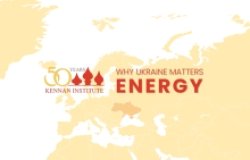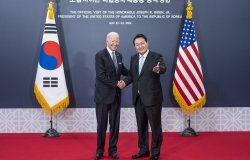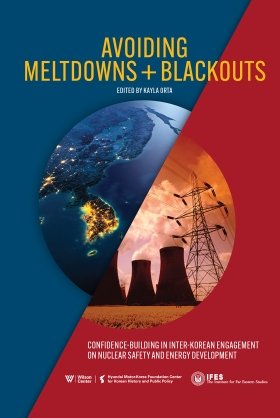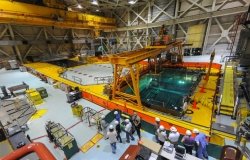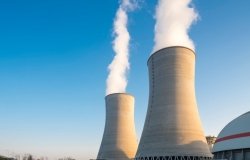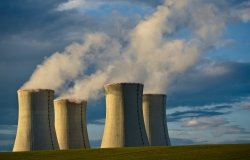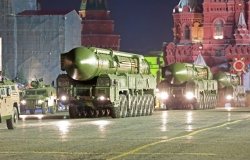Saudi Arabia’s Nuclear Ambitions: US Apprehensions and China’s Allure
US reluctance has frustrated Saudi efforts to access American nuclear technology. Meanwhile, China has begun actively supporting the Kingdom’s nuclear ambitions. American technology may still be preferred, but the wait may increase the appeal of cooperation with other nuclear powers.
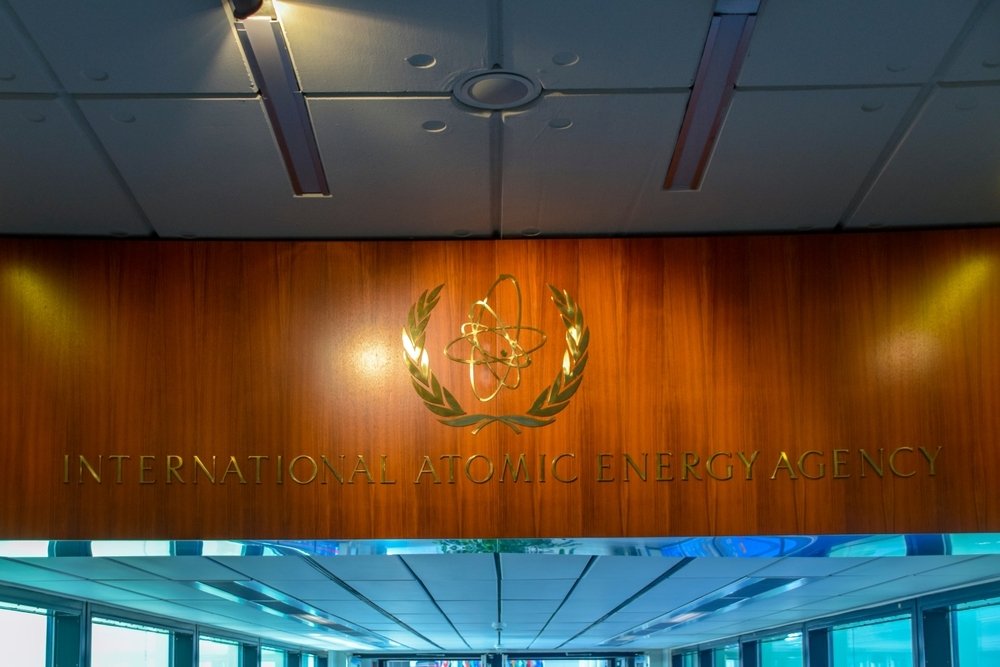
China’s intensifying engagement with Middle Eastern nations extends to both overt and covert agreements in sensitive areas and strategically crucial domains such as nuclear technology, advanced military systems, and high-end weaponry.
Vladimir Sagin, the principal researcher at the Center for Near and Middle East Studies at the Russian Academy of Sciences, supports these claims, saying, "There are secret nuclear facilities in Saudi Arabia working on producing yellowcake uranium, which is used in nuclear fuel production, indicating significant progress in local nuclear technology development. It is no longer a secret that many are surprised by this progress, and China is assisting it."
Riyadh has not concealed its ambitious program to join the club of nuclear fuel-producing states and possess a fully developed nuclear cycle. On multiple occasions, Saudi Energy Minister Abdulaziz bin Salman stated that Saudi Arabia plans to establish a self-sustaining nuclear fuel production capacity for domestic consumption and export to other nations.
Trump's involvement
Before China entered the Saudi nuclear arena, there were several attempts at US-Saudi collaboration in this domain. In 2008, Washington and Riyadh signed a memorandum of understanding to establish a civilian nuclear program, according to American standards, However, this memorandum failed to yield substantial results, and nuclear cooperation between the two nations remained very modest.
However, during the tenure of former US President Donald Trump, nuclear discussions with Riyadh were rekindled, reaching their peak in 2019 after then-US Energy Secretary Rick Perry engaged in talks with Minister Bin Salman. In March 2019, Perry revealed that the US Department of Energy had approved seven confidential licenses, permitting Saudi Arabia to acquire advanced nuclear technology from American companies. He further disclosed that the department had issued two licenses for the activity of American companies operating in the nuclear field in Jordan as well.
Nonetheless, the Trump administration faced a barrage of criticism from Congress regarding its nuclear partnership with Saudi Arabia from both parties.
Nonetheless, the Trump administration faced a barrage of criticism from Congress regarding its nuclear partnership with Saudi Arabia from both parties. In March 2019, the House Oversight Committee issued a report accusing Trump's administration of equipping Saudi Arabia with highly advanced nuclear technologies without taking legal and security considerations into account. By April 2020, as it became known that Saudi Arabia was secretly constructing a nuclear research reactor near Riyadh capable of uranium and plutonium enrichment, Congress intensified its pressure on Trump to disclose the classified specifics of his administration's nuclear cooperation with Saudi Arabia.
The congressional report elucidated that Jared Kushner, Trump's senior advisor, had initiated necessary arrangements for nuclear cooperation with select Arab nations. Trump had entrusted General Mike Flynn, his national security advisor and former head of US military intelligence, with coordinating the transfer of nuclear technology to Saudi Arabia. In response to Congress' objections, the then-Saudi Minister of Energy stated that, should the United States refrain from providing Saudi Arabia with nuclear technology, Riyadh would seek such technology from China, Russia, and South Korea.
The secretary’s statement was further confirmed when, in April 2019, it was revealed that INVAP, an Argentine government-owned nuclear company, had completed the construction of a nuclear research reactor in Saudi Arabia. This reactor could be used to produce plutonium, potentially for military purposes.
China makes its move
Conversely, China hasn't been content with merely observing the Saudi-American negotiations from the sidelines. At the first sign of hiccups in these talks, it made its move, and the late King Abdullah bin Abdulaziz and former Chinese Premier Wen Jiabao inked a bilateral agreement back in 2012 to develop a Saudi nuclear program. The Chinese National Nuclear Corporation (CNNC), a player in nuclear weapons production, extended an offer to Saudi Arabia to construct a nuclear reactor in the country's eastern region, near Qatar and Bahrain.
Chinese geologists have been actively assisting their Saudi counterparts in pinpointing uranium deposits in the northwestern reaches of the Kingdom, as well as in the Al-Ula region, where Saudi Arabia envisions the construction of the city of NEOM. In 2018, Saudi Arabia, in partnership with Chinese companies, successfully erected nuclear reactors dedicated to producing yellowcake uranium ore, situated a mere 30 kilometers northwest of Riyadh. This development underscores Saudi Arabia's progress into the second phase of the nuclear fuel cycle. Furthermore, Beijing and Riyadh have agreed on other nuclear endeavors, including collaborative ventures between Chinese experts and companies alongside their Saudi counterparts to extract uranium from seawater.
Their overtures towards China or other nations like Russia appear to be born out of the United States' reluctance to grant Saudi Arabia access to the entire nuclear fuel cycle.
Nonetheless, experts and analysts widely contend that Riyadh prefers using the more technologically advanced and secure American nuclear technologies worldwide. Their overtures towards China or other nations like Russia appear to be born out of the United States' reluctance to grant Saudi Arabia access to the entire nuclear fuel cycle. This is indicated by Riyadh's pursuit of nuclear technologies from South Korea, which predominantly relies on American standards, thus enabling Riyadh to gain access to these technologies without the concomitant legal constraints.
Dr. Hesham Alghannam, the Director-General of Strategic Studies and National Security Programs at Naif Arab University for Security Sciences in Riyadh, maintains that "there hasn't been any substantial nuclear collaboration between Saudi Arabia and China that merits discussion, be it for uranium exploration or other purposes, but China remains one of the main, pivotal options for Saudi Arabia's peaceful nuclear energy production and uranium enrichment."
Alghannam reiterates that Saudi Arabia "hasn't put forward any proposals or made any agreements with companies for this purpose thus far." He underscores that the United States stands as Saudi Arabia's preferred choice for a comprehensive nuclear deal, explaining, "If Washington rejects nuclear cooperation with Riyadh, it will make China, Russia, France, and other countries with experience in the field of enrichment, such as Germany, Brazil, Argentina, and Japan, potential partners for the Kingdom in the peaceful nuclear energy project, including the transfer of enrichment technology to Saudi Arabia."
Dr. Mohammad Qawwas, a London-based political analyst, agrees with this viewpoint, asserting, "China wants to equip Saudi Arabia with nuclear technologies. However, the question is: to what extent Saudi Arabia wants to distance itself from the United States and move in China's direction?"
He answers, "The United States and the West cannot effectively counter China's ascent in the Middle East, a phenomenon which has transpired when Gulf states, most notably Saudi Arabia, have turned eastward due to their disillusionment with what the West can proffer, primarily with respect to strategic security and energy security."
The United States and the West cannot counter China's rise in the Middle East, which has helped Saudi Arabia break the Western embargo on its possession of a comprehensive nuclear program, except in one case where the West, especially the United States, offers suitable and enticing alternatives. Essentially, Gulf countries, particularly Saudi Arabia, have only turned toward the East when they have become frustrated with what the West can provide, particularly in terms of strategic security and energy security.
Normalization with Israel
In the wake of Chinese President Xi Jinping's notable visit, bearing significant economic, security, and military promises to Saudi Arabia, the Biden administration wasted no time repairing the damages it caused in US-Saudi relations. Following a series of negotiations involving top security and political figures, the contours of a strategic consensus between the two nations began to emerge. This consensus notably includes the potential for normalizing relations with Israel, accompanied by a range of concessions and incentives from Washington.
In his recent interview with Fox News, Crown Prince Mohammed bin Salman revealed the details of this consensus, where he discussed the imminent conclusion of a historic deal with the United States, including normalization with Israel.
Dr. Qawwas argues that this deal encompasses not only the prospect of normalization with Israel but also broader dimensions: "One of Saudi Arabia's first and foremost conditions for any rapprochement or normalization with Israel is the signing of a high-level strategic security treaty. Secondly, Saudi Arabia seeks to be equipped with an advanced nuclear program from the United States, allowing the Kingdom to establish a localized uranium enrichment cycle. And the third condition is that certain concessions be made on the Palestinian issue."
He draws attention to the potential pitfalls these negotiations could encounter, pointing out, "The Palestinian issue represents a substantial hurdle to agreement among the parties involved. Additionally, influential voices within Congress still consider providing Saudi Arabia with nuclear fuel production technology a red line. Furthermore, there are voices within Israel opposing Saudi Arabia's potential acquisition of nuclear capabilities."
However, Dr. Alghannam believes the Israeli stance will not undermine Saudi Arabia's pursuit of the complete nuclear fuel production cycle. He adds, "Riyadh addresses these matters independently, recognizing that the United States is not an alternative to China, and China is not an alternative to the United States. The relationship with Israel, for the Kingdom, is not linked to its partnership with the United States or its access to uranium enrichment technology."
The G20 Summit moves forward
The recent signing of a memorandum of understanding to establish an economic corridor linking India to Europe through the United Arab Emirates, Saudi Arabia, Jordan, and Israel serves as a notable indication that Riyadh and Washington are inching closer to a major agreement that will elevate their bilateral relations to a more comprehensive level. Notably, this corridor presents a geostrategic impediment to China's Belt and Road project, diminishing its impact in South and West Asia, in addition to the fact that India is one of the most ardent opponents of the Belt and Road initiative and one of those most affected by China’s policies in that region.
In light of these swiftly unfolding developments, the escalating competition between the United States and China, and the available options, it seems unlikely that efforts to broker a deal similar to the one that allowed the construction of American nuclear reactors in the UAE will succeed. Saudi Arabia seems reluctant to embrace what is known as the "gold standard" under a 123 agreement, as it would deprive the country of a complete nuclear fuel cycle. This reluctance has been compounded by discussions within Western circles about potentially permitting Iran to enrich uranium beyond the threshold of 60%.
Amid these developments, China remains watchful, closely monitoring Saudi negotiations with the United States, which appear to be at a standstill.
Dr. Alghannam emphasizes that "the issue of uranium enrichment is intrinsically linked to Saudi Arabia's national security, and Saudi Arabia, being a nation with substantial regional and international weight, is not inclined to be reliant on other nations in the future." He underscores that it is not feasible to compare the nuclear technology programs of the UAE and Saudi Arabia. Furthermore, Dr. Qawwas casts doubt on the possibility of Saudi Arabia accepting the "gold standard," stating, "This matter is also intertwined with the future of nuclear negotiations between Tehran and Washington, specifically the discourse surrounding allowing Iran to enrich uranium to 60%, which in itself is a scandal for the West. As long as the Western powers, especially the United States, continue to permit Iran to engage in high-level uranium enrichment, Riyadh may cite this as a reference point in any nuclear negotiations with Washington."
Amid these developments, China remains watchful, closely monitoring Saudi negotiations with the United States, which appear to be at a standstill. Normalization talks seem to have regressed and taken a step back in the wake of the Israeli military offensive in Gaza. Presently, the prospects of the Indian corridor have been put on hold, and it looks like Riyadh—Crown Prince Mohammed bin Salman in particular—doesn't seem to be the type who likes to wait long.
The views expressed in these articles are those of the author and do not reflect an official position of the Wilson Center.
This article is part of an ongoing collaborative series on Sino-Arab relations with Reseef.22.

Raseef.22
About the Author


Middle East Program
The Wilson Center’s Middle East Program serves as a crucial resource for the policymaking community and beyond, providing analyses and research that helps inform US foreign policymaking, stimulates public debate, and expands knowledge about issues in the wider Middle East and North Africa (MENA) region. Read more
